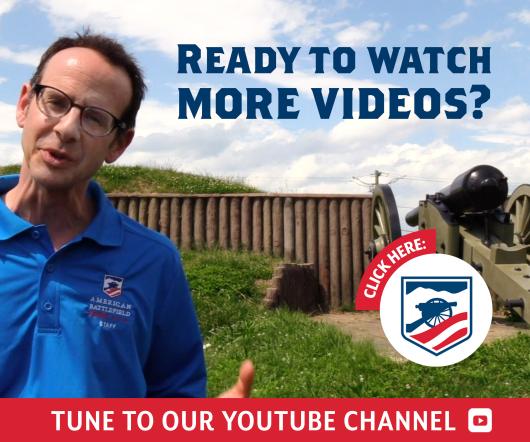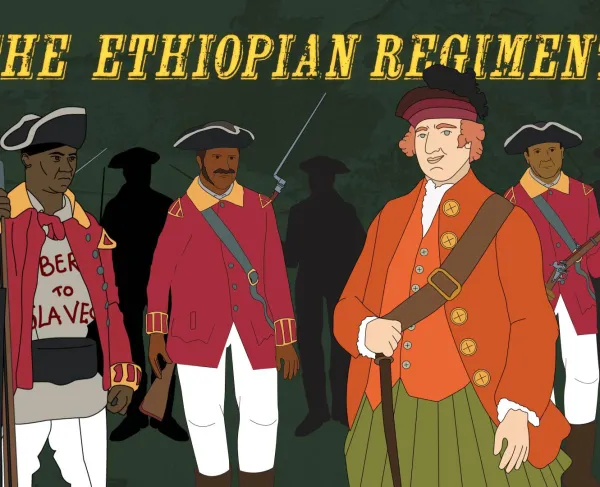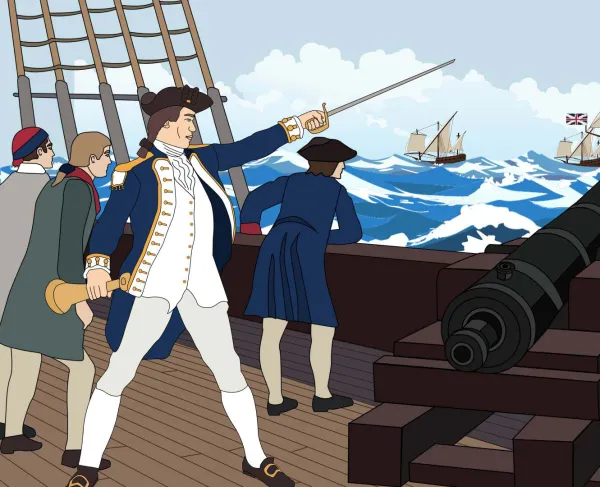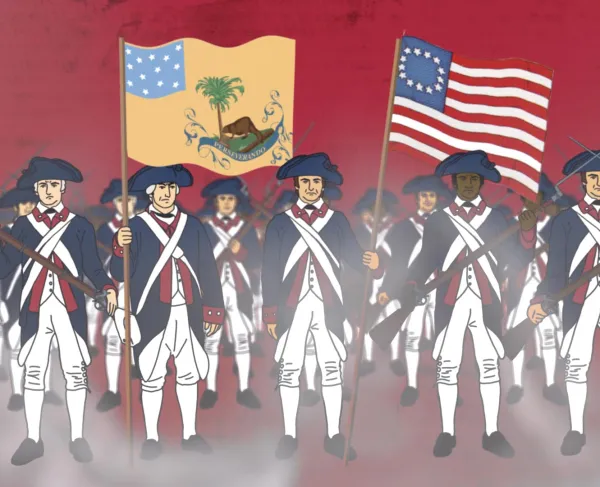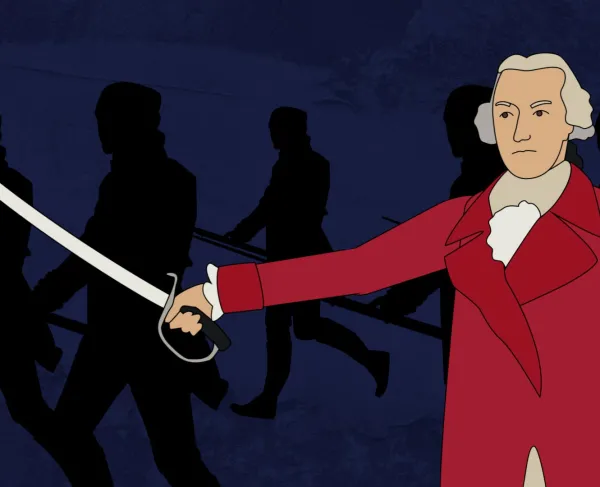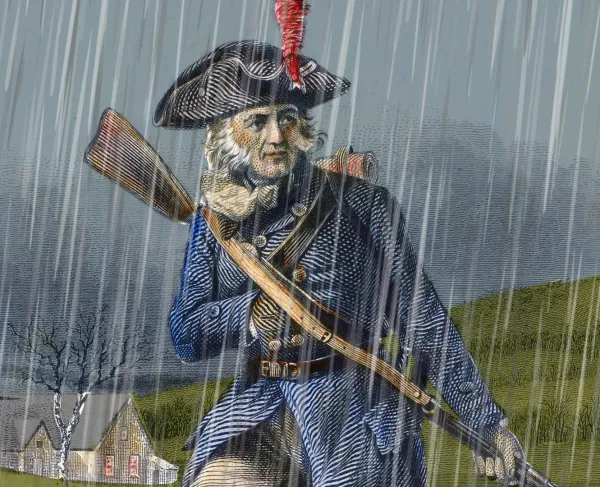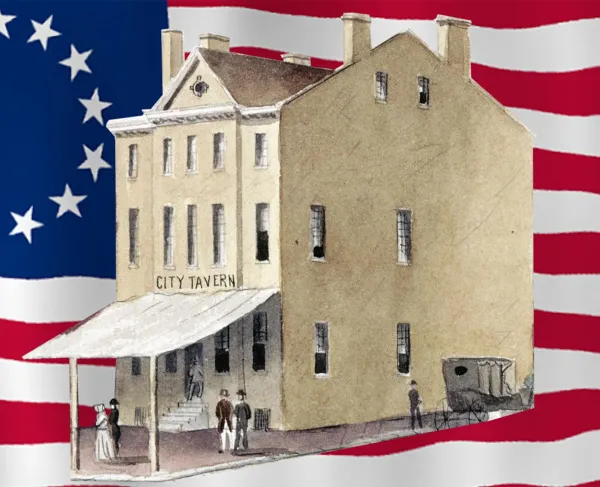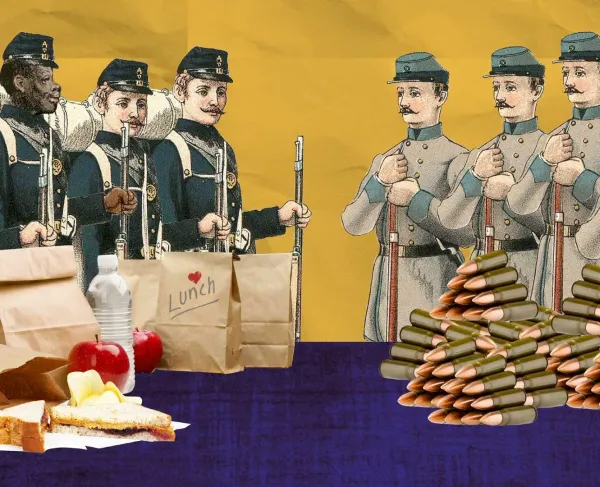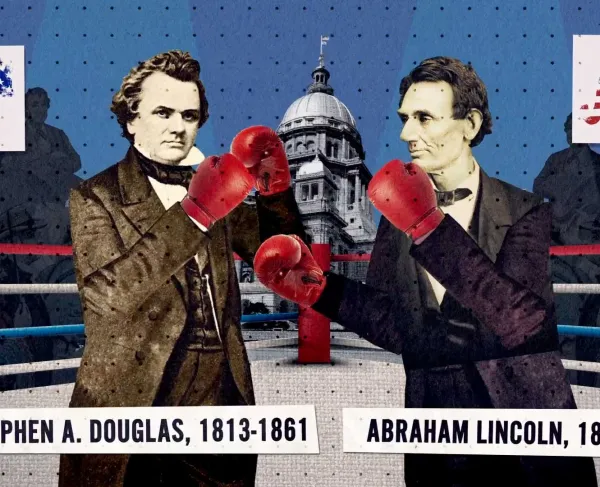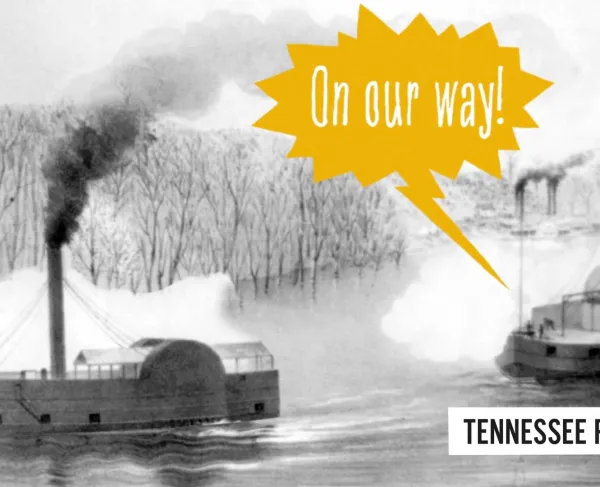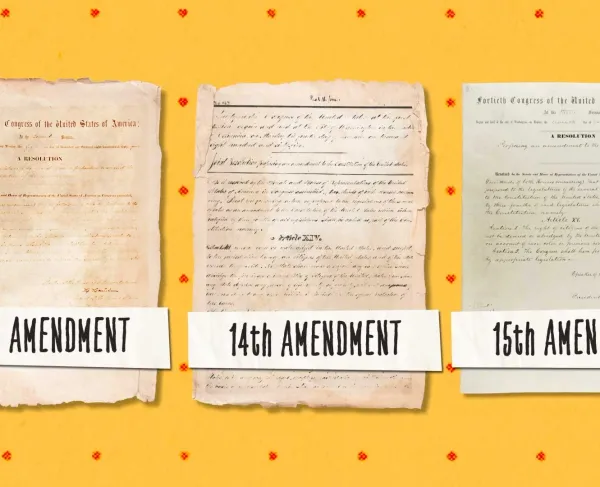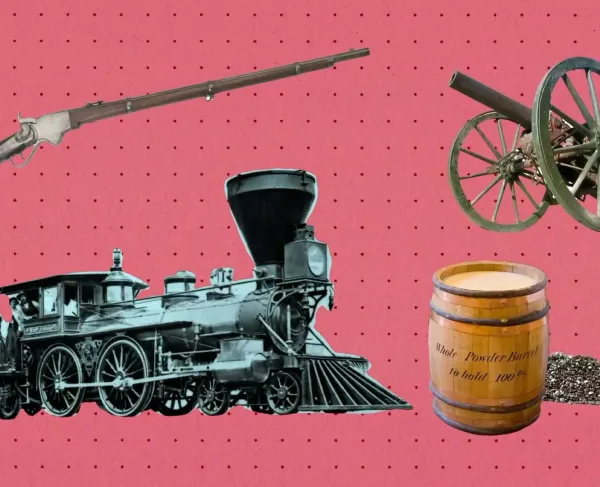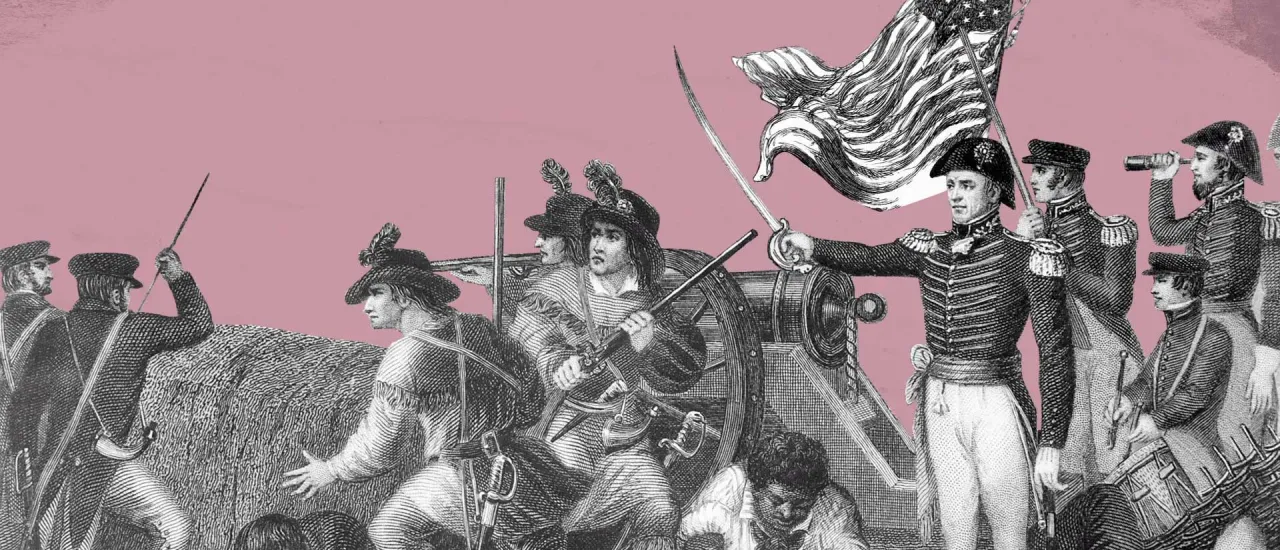
How We Became America
The Untold History
Not everything worth knowing exists inside the cover of our history textbooks. This new short video series is here to fill in the gaps and bring new stories to life. Now featuring stories from the American Revolution, War of 1812, and the Civil War!
The Latest Videos
Our latest set of videos in the How We Became America series relate to people, places and things from the War of 1812. Made for students and teachers, but easy-to-consume by all, this series is designed to fill in the gaps and bring new stories to life.
Watch the latest videos below and find a full list of videos in this series here.
The War of 1812 was a major conflict between the United States and Great Britain for control of the Northern frontier. Often described as a second War of Independence, in reality it was caused – in large part – by the ineffective foreign policies of two U.S. Presidents. (Runtime 2:24)
With a fleet of just 22 warships at its disposal, it was never going to be easy for the U.S. Navy to defeat the mighty British Royal Navy during the War of 1812. But what the enemy didn’t expect was its secret weapon – U.S.S. Constitution. (Runtime 2:22)
If the fledgling U.S. Navy was to the defeat the overwhelming might of the British fleet during the War of 1812, it would not do so at sea – but perhaps on the waters of the Great Lakes. The battles that raged on inland waters would have a huge impact on the outcome of the war. (Runtime 2:40)
After almost three years of bitter conflict, the War of 1812 between the United States and Great Britain came to an end with the ratification of the Treaty of Ghent. But was the war a waste of time and resources? (Runtime 2:25)
After three years of bitter fighting between the United States and Great Britain, the War of 1812 concluded with the Treaty of Ghent. Or at least, it should have done – because one final battle was about to be fought. The Battle of New Orleans. (Runtime 2:36)
The War of 1812 between the United States and Great Britain ultimately ended in stalemate. Yet in the aftermath of one U.S. victory, a poem was penned that would become the new nation’s national anthem. (Runtime 2:27)
During the War of 1812, British forces stormed into Washington, D.C. and set fire to the White House and other federal buildings. Rather than dent U.S. morale, however, the sacking of Washington served to galvanize the population against the British. (Runtime 2:20)
Explore Untold Stories of America's Revolutionary War History
Explore Untold Stories of Civil War History
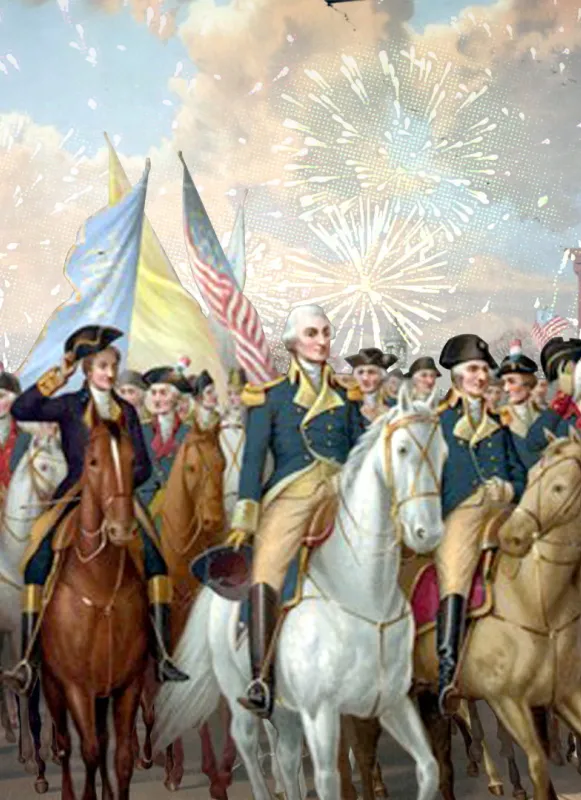
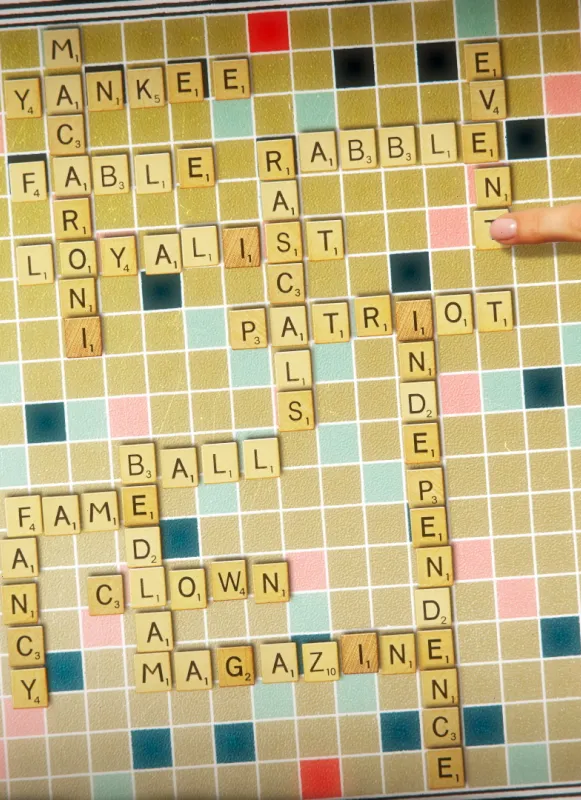
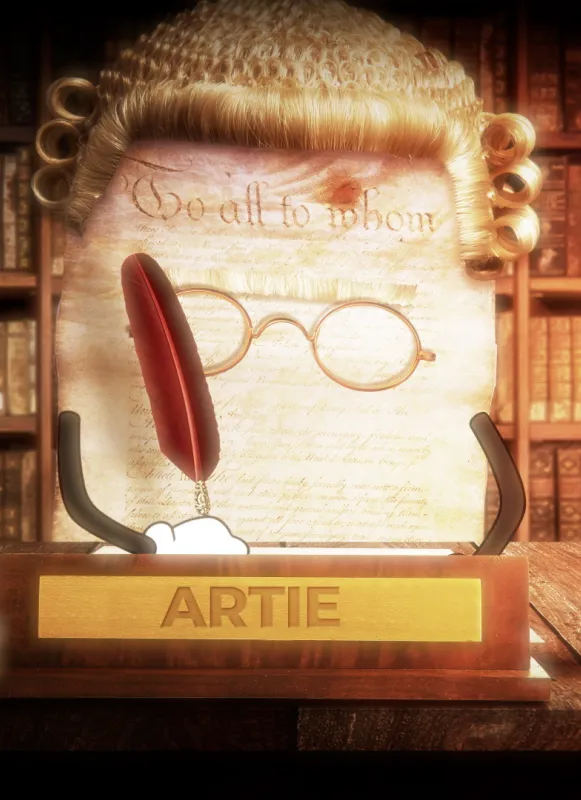
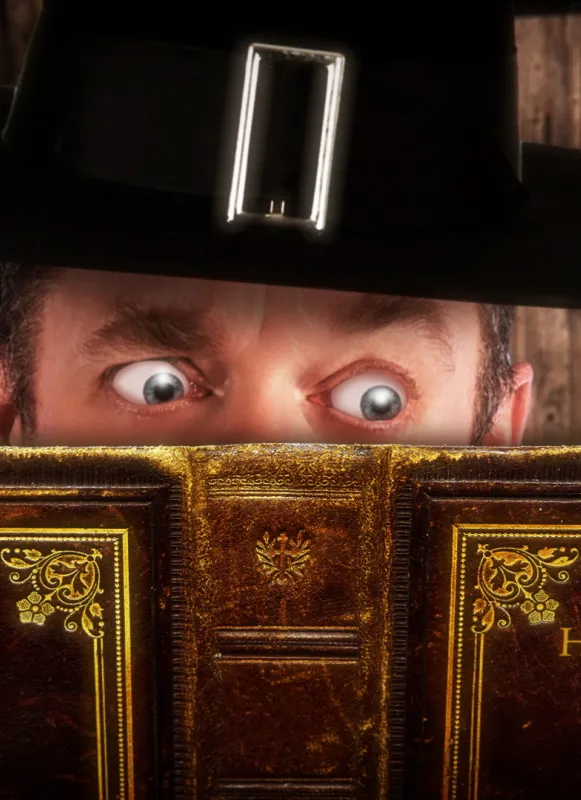
About This Project
The first 15 videos in the How We Became America: The Untold History series was originated by the American Battlefield Trust in partnership with the Driving Force Institute for Public Engagement (DFI). We continue creating videos as a part of that partnership and add material that we alone produce. A series of 10 American Revolution videos, released to coincide with the beginning the 2021-2022 school year, is an example of the latter. In early 2022, we were pleased to continue our partnership with DFI with a series of Civil War content made possible with the generous financial support of the HTR Foundation. In late 2022 and 2023, with interpretation grant funding from the federal Americans for Battlefields Protection Program we added 80 more videos on topics associated with the American Revolution. The most recent videos cover the topic of the War of 1812 and were again created in partnership with DFI.
How We Became America: The Untold History is associated with DFI’s larger Untold initiative, which is produced and distributed by Makematic and the University of Southern California’s Center for Engagement-Driven Global Education (EDGE). How We Became America is filled with eye-catching animation based on iconic period images, plus a slightly irreverent attitude designed to show that history is dynamic.”
Made for students and teachers, but easy-to-consume by all, the series is designed to fill in the gaps and bring new stories to life. Our goal with the videos is to complement existing civics-related articles, primary sources, and videos. Video is a compelling way for people to learn and made even more important in the age of distance learning. It’s an extremely portable format that works at home, in a classroom, on TV, and on a mobile phone.
